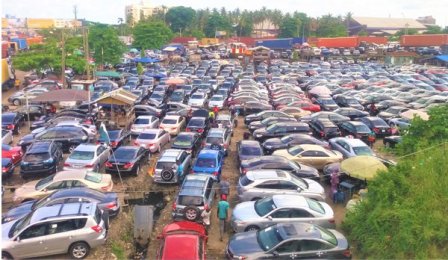FEMI OWOEYE
A dangerous trend has persisted in Nigeria’s road transportation sector. A life threatening one it is. As a result, 100s of fatal road crashes are recorded and many lives are avoidably lost every year.
Major contributors to the sickening scenario are personnel of States’ Inland Revenue Agencies across the country, who issue certificates of roadworthiness without sighting or ensuring that the vehicles concerned pass through necessary safety tests as required by law.
In Nigeria, vehicle owners are legally required to possess up-to-date Road tax (Vehicle license), Comprehensive or third Party insurance and Certification for Roadworthiness. Road tax, a copy of which is usually pasted on vehicles’ windscreen, is issued by every state’s Inland Revenue Agency at a prescribed cost.
On the other hand, every motorist is expected to freely approach a company of choice for an insurance policy (third party, fire and theft or Comprehensive).
Aside the foregoing, vehicle owners are also required to yearly surrender their vehicles for safety inspection and tests at the nearest VIO (vehicle inspection Office) office. At this point, the VIO inspects all features that make a vehicle safe for driving on the road, including brakes, tyres, lights, mirrors and even emission, among others.
For instance, before the VIO certifies a vehicle for roadworthiness, all light bulbs must be working; suspension must be in order. VIOs importantly inspect the brakes and also certify that tyres are not only on date but their treads are not below 1.6mm. Headlights, signal lights as well as horn are equally checked.
Unfortunately, in most states of Nigeria, Certificate of Roadworthiness is automatically issued by the Inland Revenue alongside Vehicle License and Insurance. All that a motorist needs to do is hand over all the expired documents to a state’s Inland Revenue personnel, make a bulk payment and return later to pick up all renewed documents, including a roadworthiness certificate.
By implication, vehicles with mechanical and safety defects are simply certified, thereby making Nigerian road users accidents waiting to happen. In essence, a death trap, inter-state commercial vehicle with bad brakes and worn tyres could be falsely certified for roadworthiness.
Unfortunately, members of the Federal Road safety Corps(FRSC) are these days as useful as an ashtray on a motorbike. Disappointedly, they now do what the police are known for. They now stop commercial vehicles, not for safety reasons, but with the motive of collecting money. Unlike the police, they do not collect money openly. When a regular marshal flags down a commercial vehicle on the highway, the driver knows he is expected to pull up at least 20-feet away from the FRSC personnel. The driver stops, stuffs the required money inside his vehicle documents, folds them up, walks towards the FRSC personnel, far away from the view of passengers and hands over the documents. Then, pretending to do some checks, the FRSC personnel opens the documents, stylishly picks the money, hands back the documents to the driver, turns sideway and stuffs the money in his pocket.
Also, the stings surrounding importation of accident vehicles into Nigeria contribute in no small measure to the volume of unroadworthy vehicles plying Nigerian roads. Despite the exposing investigative story about the development published in Motoring World couple of years ago, it has remained business as usual. In United States, scraps on wheels are still cut in half, including chassis, containerized, shipped to Nigeria, cleared at the port and delivered at one of the unlicensed assembly plants, where they are welded together, painted and sold as “tokunbo” vehicles.
From our findings, many of such vehicles come with faulty airbags, such that, when involved in road crash, the airbags either do not activate or when they do, turn to shred, thereby increasing the fatality of such accidents.
And registering those vehicles that are neither cleared from the ports nor sold as locally assembled vehicles should not have been possible, if not with the involvement of bad eggs in the FRSC, who are bribed to facilitate their entry into the nation’s motor vehicle database.

Editor/CEO, Motoring World International
To reduce loss of lives arising from the foregoing scams, there is a need for all affected states of the federation to borrow a leaf from Lagos State and stop Inland Revenue personnel from processing and certifying unseen vehicles for roadworthiness and give VIOs matching orders to start doing their jobs.
As available in Lagos State, they can even set up test centers, where vehicles are tested and certified for roadworthiness without which road tax and Insurance cannot be renewed.
©Copyright MOTORING WORLD INTERNATIONAL. All rights reserved. Materials, photographs, illustrations and other digital content on this website, may not be reproduced, published, broadcast, rewritten or redistributed in whole or in part without prior written permission from Motoring World International
Contact: [email protected]




